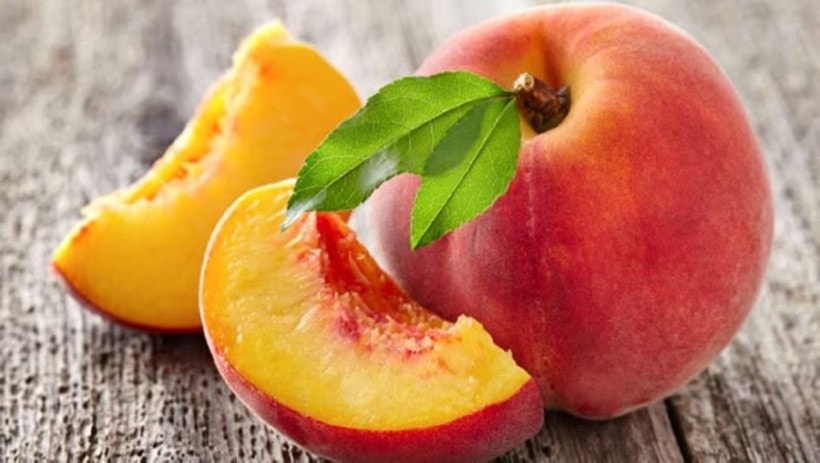Can eating peaches regularly help prevent cancer?
Peaches are low in calories and fat, which can help with weight loss. In addition, this nutritious fruit is also high in fiber, which is good for gut health.
Even regular consumption of peaches may reduce the risk of certain types of cancer.
Peaches are a stone fruit because they have white or yellow flesh encased in a skin with a seed inside. Peaches can be enjoyed in many ways - eaten raw, roasted, or even in juice form.
According to experts, you should add peaches to your diet not only because of their sweet taste but also because they have many health benefits.
Support digestive health
According to the United States Department of Agriculture, approximately 100 grams of raw peaches contain 1.5 grams of fiber. This fiber content plays an important role in promoting healthy digestion. It addresses issues like diarrhea and constipation, ensuring smoother digestion and bowel movements.
Weight loss support
The low-calorie and low-fat nature of peaches, combined with their fiber content, makes them a good choice for weight loss. Their ability to promote feelings of fullness and aid digestion through fiber is important for those looking to lose weight.
Support eye health
Experts say peaches are rich in vitamin A and beta-carotene, which are good for the eyes. Their presence helps maintain good vision and significantly reduces the risk of cataracts, a condition that cloud the lens of the eye.
Protect your skin
Peaches provide a shield against harmful UV rays thanks to antioxidants like vitamin C and beta-carotene. This protection not only protects the skin but also enhances its appearance, giving it a healthier glow.
Anti-inflammatory properties
Peaches contain polyphenols and antioxidants. By inhibiting the release of histamine and inflammatory cytokines, regular consumption of peaches helps reduce inflammation.
Strengthen the immune system

Peaches help boost the body's defense system. They boost the immune system, ward off illnesses like the common cold, and improve overall immune function.
Cancer prevention
In a 2013 study published in the journal Breast Cancer Research and Treatment, postmenopausal women who ate at least two peaches a day had a lower risk of breast cancer. Antioxidants found in peaches, including vitamin C and phenolic compounds, play a role in fighting cancer.
Support cardiovascular health
If you are low in potassium, eating peaches is a smart choice. According to the USDA, about 100 grams of raw peaches have 122 mg of potassium. Potassium helps regulate blood pressure and helps maintain a healthy heart.
Support for pregnant women
Peaches contain vitamin C and folate, which are great for pregnant women. These nutrients not only boost the immune system but also aid in iron absorption, contributing to the overall health of the mother and fetus.
How to add peaches in your diet

If you don't want to eat peaches directly, include them in your diet in the following ways:
- Enjoy them sliced in yogurt or oatmeal for a nutritious breakfast.
- Blend into a smoothie.
- Add to salads for a sweet taste.
- Grilled peaches add flavor and they can even be used in chili sauce.
- You can also enjoy canned peaches.
Experts say canned peaches are just as nutritious as fresh peaches. But when buying canned peaches, consider factors like the type of syrup (heavy, light, or natural), whether they are packaged as juice or syrup, the expiration date, and check the condition of the can for any dents or damage.
Consuming large amounts of canned peaches packed in syrup can lead to increased sugar intake, which also contributes to weight gain, dental problems, or blood sugar spikes in people with diabetes.
Side effects of peach
Peaches contain carbohydrates, so if you have diabetes, don't make eating this fruit a daily habit. Experts say some people may experience allergic reactions, especially if they are sensitive to this fruit.
Symptoms of a peach allergy may include:
- Itching or swelling in the mouth, throat, or lips.
- Rash.
- Digestive discomfort.
Overall, eating peaches can be good for your skin, eyes, gut health, etc., but make sure you consume them in moderation, especially if you have diabetes./.



